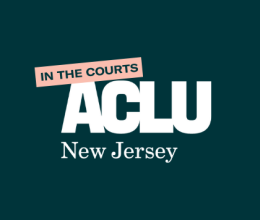
Nearly $11 million for Construction Awarded to Two Schools Raises Concern About Discrimination, Use of Public Funds to Support Religious Mission
NEWARK – The ACLU of New Jersey, the ACLU and Americans United for Separation of Church and State submitted written arguments (PDF) challenging New Jersey’s rationale for awarding more than $11 million in taxpayer funds to two higher education institutions dedicated to religious training and instruction.
NJ Attorney General John Hoffman defended the state grants to the Lakewood Yeshiva Beth Medrash Gohova and the Princeton Theological Seminary in a brief dated June 10, 2015, in the lawsuit ACLU-NJ v. Hendricks. Hoffman argued that the grants are for academic purposes – the construction of classrooms, a library and other capital improvements – not furtherance of religious teachings and, therefore, do not violate the state Constitution or the Law Against Discrimination.
“The Constitution does not allow the State to subsidize the training of clergy or other religious instruction, nor does it allow subsidizing discriminatory institutions. The proposed grants would do exactly these things,” said Edward Barocas, legal director of the ACLU-NJ.
Responding to the state’s defense, groups filed a brief characterizing the State’s arguments as “unavailing” and an attempt to undermine a 1978 NJ Supreme Court ruling that clearly bars the use of public funds for the maintenance or support of religious groups. The brief asks the state Appellate Court to recognize the violations of the Constitution and bar the state from awarding the tax-funded grants to the schools.
“Taxpayers must not be forced to fund divinity schools," said Americans United Associate Legal Director Alex J. Luchenitser. “The court should strike down these grants.”
On April 29, 2013, following a competitive application process, New Jersey Gov. Chris Christie’s administration released a list of 176 college construction projects to be funded with the proceeds from a voter-approved bond sale. The ACLU of NJ, ACLU and Americans United, went to court in June 2013 to challenge the funding under the state Constitution and the Law Against Discrimination.
“These grants flout important safeguards in the state Constitution,” said Daniel Mach, director of the ACLU Program on Freedom of Religion and Belief. “Taxpayers shouldn’t have to underwrite discrimination or the religious training of clergy.”
Background
Even though the New Jersey Constitution forbids taxpayer funds from supporting ministries or places of worship, the state awarded $10.6 million to Beth Medrash Govoha, an orthodox Jewish rabbinical school in Lakewood, to build a new library and academic center. The state also awarded $645,323 to Princeton Theological Seminary for expansion and construction of classroom and study space.
Courses of study at both of these schools prepare students to serve as religious leaders or religious educators. The New Jersey Secretary of Higher Education’s website identifies each school as a “theological institution.” The Yeshiva does not admit women and its faculty is entirely male and Jewish. The seminary requires degree students to be Christian.
Lawsuit
The ACLU-NJ, ACLU and Americans United for Separation of Church and State went to court in June 2013 to challenge the funding under the state constitution and the New Jersey Law Against Discrimination. In their brief, the plaintiffs cited three violations of the state Constitution, which prohibits using taxpayer funds:
- for the maintenance of any religion or ministry;
- to subsidize or build facilities at which religious services or instruction will take place;
- if such funding does not serve a public purpose.
Further, the brief cites the New Jersey Law Against Discrimination (LAD), which prohibits any place of public accommodation from discriminating based on religion or sex.
Because governmental entities are public accommodations subject to the LAD, they are prohibited from providing special benefits to organizations that discriminate based on religion or sex. The proposed grants constitute special benefits to two institutions that do exactly that. The Seminary has a policy of allowing only Christians to become degree students, faculty, or board members. While it has no formal policy barring women or non-Jews, the Yeshiva’s entire faculty is Jewish and male and the student body is all male and believed to be all-Jewish.
The State’s Response
Hoffman’s response argued that the 176 grants included awards to 15 private institutions and that the stated public benefit -- to improve the quality and capacity of higher education in New Jersey -- is not measured by each grant but rather by the entirety of the program. The state also said the grants were for the benefit of education not religious instruction, because the assistance is meant for classrooms, libraries and other academic functions.
Further, the State argued that schools with religious affiliations are not barred from taxpayer assistance, such as police and fire services, and that the plaintiffs’ assertion that the grants are violations is an overly broad interpretation of the state Constitution and the NJ Supreme Court’s findings in the landmark case, Resnick v. East Brunswick Township Board of Education.
Finally, the state argued in its written brief, “Religious institutions are expressly exempt from the LAD,” and that the State should not be barred from giving funds or other special benefits to organizations that are permitted to discriminate because they are exempt from the law.
The Plaintiffs’ Reply
Despite the state’s claim that the grants were plentiful and wide-reaching, the awards were made competitively, at the discretion of the State Secretary of Higher Education, and nearly a third of the applications for funding were rejected.
While the NJ Constitution does not preclude the State from providing general services such as fire and police protection to religious organizations, it does foreclose direct “out-of-pocket” funding for sectarian religious instruction and the training of clergy.
While religious institutions may be exempt from the LAD and therefore permitted to engage in discrimination, a place of public accommodation covered by the law (including the NJ government) is not permitted to indirectly promote or support such discrimination by providing special benefits to such discriminatory groups. Here, the State is providing the two institutions a total of more than $10 million in discretionary taxpayer funds.
Oral argument in the case has not yet been scheduled.



